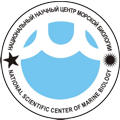 |
Laboratory of Deep-Sea Research
Scientific Head: Tatyana Nikolaevna Dautova, a senior researcher, Cand. Sci. Biol.
Main fields of research
Integrated study of deep-sea ecosystems: functional structure of communities, ecology, resources, and relationships with the ocean shelf zones.
Main objectives of the Laboratory
Study and identification of the functional structure of deep-sea ecosystems, their role and position in the structural and functional organization of the global ocean system. Biogeographic and structural analysis of faunal complexes.
Identification of interrelations between faunal complexes formed in different regions of the ocean, pathways of distribution and dispersal, as well as conditions for faunal groups to form.
Study of effects of environmental factors on the formation and functioning of ecosystems’ biotic components under extreme deep-sea conditions, high pressure and lack of light, as well as components energetically dependent on chemosynthesis or methanotrophic.
Interrelations between benthic and pelagic components of deep-sea and shelf ecosystems; effects of environmental factors on their resources and succession processes in biocenoses. Obtaining high-value data for predictive modeling of development pathways and succession patterns in deep-sea vulnerable ecosystems exposed to anthropogenic activities.
Analysis of factors that have an effect on distribution of indicator groups of macrobenthos organisms (hydrocorals, scleractinians and octocorals, sponges, etc.), meiobenthos (crustaceans, nematodes, etc.), plankton, and microbiota in the deep-sea waters of the northwestern Pacific Ocean.
Mapping the distribution of indicator species of vulnerable deep-sea ecosystems (corals, sponges, etc.) on volcanic and rift elevations of the ocean floor. Assessment of population density and biomass of deep-sea benthic organisms, analysis of their condition and resources, prediction of the near future and development of scientifically grounded recommendations for their rational use and conservation.
Relevance of North Pacific deep-sea ecosystem research
A biological study of vulnerable deep-sea ecosystems integrated with hydrophysical, geological, and other research surveys in the northwestern Pacific Ocean is urgently needed due to the active interest shown by the United States, Canada, Korea, and Japan in this region. This will allow Russia to conduct pioneering research in the high seas of the North Pacific, take an active position, and make a significant contribution both to the work of international organizations regulating the use of marine bioresources of deep-sea ecosystems and to international scientific cooperation in the region. This will also provide Russia’s leading position in the study, conservation, and rational management of biological resources of the World Ocean, as well as the sustainable development of the Russian Federation towards improving the quality of life and food security and the development of technologies for ensuring biological safety of marine waters of the Russian Federation.
The deployment of up-to-date remotely operated underwater equipment and the development of methods for mapping and non-contact monitoring deep-sea ecosystems will allow Russia to make a significant contribution to the inventory of biological diversity and resources in the World Ocean, as well as to develop scientifically grounded approaches to the conservation and reproduction of marine biological resources.
Promising fields of study of ocean’s deep-sea ecosystems
Study and monitoring of deep-sea biocenoses in areas of intensive industrial activity (fishing) using remotely operated underwater vehicles (ROV). Development of methods to collect and fix deep-sea organisms for modern recording systems and long-term storage of marine biological material. Assessment of population density and biomass of benthic organisms, analysis and prediction of variation trends in communities of deep-sea ecosystems in the northwestern Pacific Ocean.
Improvement of technologies for collecting samples of deep-sea objects to study the physiology and life processes of aquatic organisms exposed to extreme conditions of ocean’s deep zones (high pressure, low temperature, lack of light, and chemosynthesis-dependent and methanotrophic communities).
Elaboration of methods for collecting and fixing samples of organisms for taxonomic and faunal research in order to carry out inventory of deep-sea fauna and identify genetic relationships between local deep-sea ecosystems and certain populations.
Study of faunal, trophic, and biogeochemical relationships between deep-sea ecosystems of the Far Eastern seas of Russia, the northwestern Pacific Ocean, and adjacent ocean waters.
Study of faunal, trophic, and biogeochemical relationships between deep-sea and shelf ecosystems.
Assessment of significance of the environmental factors (water quality, sedimentation, anthropogenic activity, etc.) responsible for structural changes in faunal complexes and condition of bioresources.
Development of a technology for sampling deep-sea bottom sediments, microbial mats, and gas seeps to conduct a comprehensive study of the role of biogeochemical relationships in deep-sea biocenoses.
Development of methods for deep-sea video and photo recording for the purpose of inventory of deep-sea faunal complexes and bioresources, as well as sources of unique biologically active substances, with the use of ROV.
Creation and implementation of novel technologies for the assessment and monitoring of deep-sea biological resources in order to obtain high-value foods, unique natural compounds with high pharmacological potential, and ensure food independence and biological safety of waters of the Russian Federation.
Information provided by the senior researcher T.N. Dautova.
| Contacts: |
|
Palchevskogo str. 17 |
|
Vladivostok, Russia, 690041 |
|
Phone: +7 (423) 2310905 |
|
Fax: +7 (423) 2310900 |

